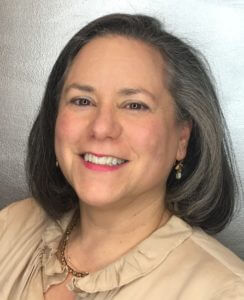This is a guest post from Susan K Finston, President of Finston Consulting. Do you have a response to Susan’s post? Respond in the comments section below. 
Given the increasing focus on microbiome technologies for better, safer therapies, and critical importance of Intellectual Property (IP) protection for their full commercialization, it is great to see the 2017 BIO Convention Microbiome IP Panel: “Innovation and the Human Microbiome: Patent Eligibility and IP Protection.”
Organized as a roundtable discussion, the BIO 2017 Microbiome IP Panel provides a timely review of US and European IP protection for microbiome inventions, reviewing a prototype invention disclosure as a case-study and surfacing issues involving pre-biotic, pro-biotic, and diagnostic inventions. Participants include moderator David A. Gass, partner, Marshall, Gerstein & Borun LLP (and fellow University of Michigan alumnus), with speakers Simon O’Brien, experienced European Patent Office (EPO) counsel, Amanda Barry, P&G Patent Counsel, and Michelle Booden, Salk Institute Researcher, with extensive tech transfer experience. I spoke with moderator David Gass in advance of the event.
Biotechblog readers may recall that I wrote about recent USPTO patent issuances as good news for microbiome technologies, including approval of Amrita Therapeutics modified, truncated microbiome (oncology) peptide. While promising, these individual issuances do not reach the broader IP issues relating to microbiome diagnostics and/or other potential exceptions to patentable subject matter.
Under USPTO patent examination guidelines, microbiome inventions may continue to attract heightened scrutiny relating to the natural products exception to patentable subject matter, similar to the difficulties posed by Mayo and Myriad for the human genome diagnostic space, and with particular concerns for microbiome diagnostics. As David notes, this in turn raises the stakes for stewardship and management of microbiome inventions that may range from pre-biotics, pro-biotics, bacterial products, etc., to enhance likelihood of success in gaining effective patent protection:
Given the complexity of microbiome science, the uncertainties in IP law and regulatory pathways for microbiome technologies, and ongoing challenges obtaining broad IP protection for complex biotechnology inventions, it is more important than ever for companies to work closely with experienced patent counsel from the earliest stages of discovery.
The upcoming Microbiome IP Panel – scheduled for Tuesday, June 20 from 1:45-2:45 p.m. in Room 1B of the San Diego Convention Center – is well timed to demystify patentability issues for a range of microbiome technologies, and looks like a hot ticket for BIO 2017.
As we used to say in Ann Arbor, be there or be square.
About Susan Finston:
President of Finston Consulting LLC since 2005, Susan works with innovative biotechnology and other clients ranging from start-up to Fortune-100, providing support for legal, transactional, policy and science-management issues. Susan has extensive experience relating to intellectual property and knowledge-economy issues in South Asia and the Middle East North Africa (MENA) regions. She also works with governments, and NGOs on capacity building and educational programs. Together with biotechnology pioneer Ananda Chakrabarty, she also is co-founder of Amrita Therapeutics Ltd., a microbiome drug developer that recently received its first US patent. Previous experience includes 5.5 years as Associate Vice President, Pharmaceutical Research and Manufacturers of America (PhRMA), where she led the international patent reform advocacy in the MENA region and South Asia (India) and 11 years in the U.S Foreign Service with tours in London, Tel Aviv, and Manila and Washington DC. For more information on latest presentations and publications please visit finstonconsulting.com.